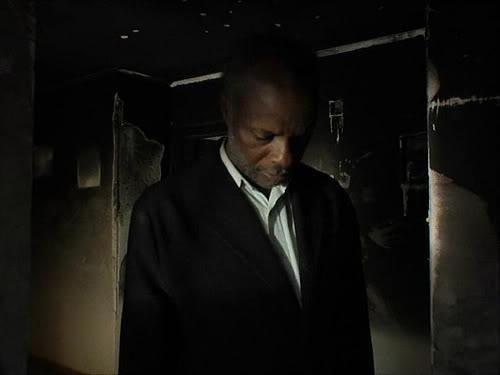“Terceira Metade” (“Third Half”): Between honey and poison: the dangers of the sweet charm of Portuguese language
What I bring for discussion in the seminar “Terceira Metade” (“Third Half”) does not constitute a closed reflection on the theme of lusosphere. It is the expression of the anxieties of somebody who comes from a national and institutional context of Portuguese language, researches in another supposedly lusophone context and has, as privileged interlocutors, Portuguese friends and colleagues. I intend to deal with the issue of lusosphere starting from certain situations marked by mutual misunderstandings, dissensions and anxieties, referring to Brazil, Mozambique and Portugal.
We must deal with a first, introductory issue: in short, what is lusosphere? The question is even more interesting once we understand that behind this vague notion we meet different meanings and that its political, cultural and social influence is quite differentiated in the different countries that adopt Portuguese as official language. Thus, I set lusosphere as the debate existing about this concept, which has very differentiated weights if we are in Brazil, in Portugal or in Mozambique. This debate has involved, for some time, thinkers of different disciplines; it takes root in Portuguese and Brazilian intellectual history and calls attention, in different ways, to the complex formation process of the Portuguese-speaking African countries and Timor. The connections between the debate about lusosphere and Lusotropicalism are clear, but nonetheless I don’t think it is confined to that. Moreover, if lusotropical echoes are evident, we cannot forget Hispanidad or Francophonie as political and intellectual movements with which lusosphere shares the conditions of its production.

Finally, in a general sense, I set lusosphere as a debate far from any substance, a virtual focus that, referring to Portuguese language, develops its own dynamics in different national contexts. Far from being in front of a consensual thought, lusosphere hovers on situations of tension that put in contact these different contexts with each other. Such tensions help us to think about the fragility of certain lines of thought that cover lusosphere, but not only about that: they are able to reveal conceptual lapses, accommodations and, above all, a sort of trend of self-congratulation that seems typical of certain debates, especially in Brazil and Portugal. I don’t think that this self-congratulation is present in the African contexts, at least relating to my Mozambican experience. There, if the subsequent crises, wars and complexities due to the formation process have inhibited the consolidation of something similar to a reasonable public debate, they have also avoided the self-satisfaction that strikes at the critic and harms the thought.
II
In a quite general way we can say, without fear, that in Brazil there is no debate about lusosphere at all. The evidence that we are a big country in South America that speaks Portuguese seems to neutralise any type of public concern for the linguistic issue or about the official and national language. Spanish is not a threat at all and we do not grant Portugal a specific authority in matters of language. The linguistic identity between Brazil and the other Portuguese-speaking countries swings among a quite narrow rhetoric (for example, about a possible leading role undertaken by Brazil in Portuguese-speaking African countries – PALOPs in Portuguese – and, more recently, in Timor), its instrumental and practical character – all in all, there is a country in Europe that speaks our language – and, above all, the evident, characteristic ignorance of those countries that feel they are great.

In Portugal things are different: from each side lusosphere rises as an object of contention. And here we can find everything: goodwill, paternalism, a more or less critic revision of the nation’s history, colonialism, post-colonialism, nationalisms, search for identity … everything that makes lusosphere be a real public debate, often charged with a huge rhetoric weight, too, and easily dissociated from projects of practical action in the countries where Portuguese is official language. The most impressive thing is maybe the emotional character that the debate about lusosphere often gains: the expectation of an emotional link among Portuguese-speakers around the world overlaps the identity of Portugal with the countries once part of an empire (which in reality was never an empire, but multiple empires, different in space and time). Notice that it is not the case of a political project, for example à la Francophonie, where among enormous rhetorical exercises French was imagined as an emancipative language. Nothing similar: Portuguese allows us into a universe of meanings and affections, in a sensory world, in a taste, in a musicality, in a supposedly common history; everything surrounded of a great mystery.
Anyway, if we go to Mozambique everything changes. If it is true that we encounter national, regional and local elites strongly attached to Portuguese language (a fact that has been decisive for the continuous expansion of this language in the country), the notion of “the colonizer’s language” still rises as a ghost. After all, if there is no more a colonizer, how can a “colonizer’s language” exist? Is not Portuguese one Mozambican language like many others? No, it isn’t, obviously, for the place of Portuguese in the country’s social history and geography. Colonialism dates back to a recent period, in which behind assimilationist rhetoric we can find an astonishing number of practical artifices to turn Portuguese into an exclusive language for few people; the expansion of the language during the post-independence period did not presume an overtaking, because Portuguese began to be part of a deeply unequal universe that expresses itself also in the way how the fore-external language was embodied in the Mozambican social web.
If there is something that connects these three contexts it is not the use of the language, which is something too general (and a question always fits, do we really understand each other in Portuguese?), but the place the language occupies in a complex system of reproduction of inequality and different forms of inclusion and exclusion.

III
One of the most shocking things for a Brazilian arriving in Portugal is to find out that we don’t speak Portuguese, but Brazilian. Saying that we speak “Brazilian”, which would be an aberration for us, is common in Portugal. At school, in Brazil, we don’t have classes of “Brazilian language”, but of “Portuguese”; we don’t follow a “grammar of Brazilian”, but “Brazilian grammars of Portuguese language”. And we never refer to the existence of a “Brazilian language” opposing to “Portuguese”, but we do refer to “Portuguese with an accent from Portugal” and “Portuguese with an accent from Brazil”; or to our Portuguese and the others’, with accents.
Paradoxically, it is more frequent that a Brazilian encounters difficulty of comprehension of Portuguese from Portugal than the contrary. The phenomenon, which is often attributed to Brazilian soap-operas in Portugal, to the supposed speed with which the Portuguese would speak our language or to the phonetic peculiarity of this language in the Iberian Peninsula, has to be addressed with a little more care. It seems to me that there is, undoubtedly, a sort of “ill will” that has to be interpreted as a historical and social construction. In fact, it doesn’t stop shocking me the fact that some Brazilian intellectuals say they prefer watching a Portuguese film with subtitles, or refuse to read in terms like “algures”, “nenhures” or “alhures” (somewhere, nowhere, in another place) the richness of a common language. We are in front of a sort of resistance, and also of laziness, that is connected to the form with which we relate with language and with history.

I would say that in Brazil – and with every nuance we have to consider when talking about the different social groups that, with a lot of goodwill, we can call Brazilian society – there is a sort of relationship of the elites with the language that races for its systematic destruction, a behavior that is directly connected to the self-congratulation with which these same elites judge that thing which has been conventionally called “Brazilian culture”. It is frequent to hear, from the less suspect mouths, that Portuguese from Brazil is richer, more lively and sweeter, more everything, in short, without being the superlative a consequence of any comparative effort: it is “more” because we are “more”, and that’s all. In reality, a careful hearing would understand that we walk towards a frightening simplification of the language, eliminating verbal tenses, not respecting any form of concordance, ignoring grammar as something able to translate richness but as an amount of stodgy rules that muddle our life and that of our children…
Our elites are able to, at the same time, speak a sinister Portuguese and consolidate themselves, with this Portuguese, in front of the whole population, exposed to a not less sinister educational system. The “wrong way of speaking” makes a fast localization of individuals in a cruel social pyramid easier, in front of an elite that boasts about “speaking in the wrong way”, too, and depreciating any kind of intellectual effort to improve the language in everyday life.
IV
In Portugal the situation could be different. Among all Portuguese-speaking countries it is undoubtedly the most egalitarian. Nonetheless, things are not completely like that. I won’t enter any kind of consideration about the place regional diversity occupies in the social use of the language, as I imagine that it is an extremely rich universe, since the regional diversity of peninsular Portuguese is, without any doubt, impressive. What really interests me is the relationship established with Portuguese-speaking people from other countries, especially from Brazil.
It is a long time since Brazilian stopped being treated as a sweet variety of European Portuguese, associated to the glorious years of the arrival of the telenovela Gabriela in Portugal. What was exotic and nice became relatively oppressive, the amount of Brazilian people preoccupies in a country perceiving its smallness, and even Brazilian exuberance seems to wave between charm and rejection. Brazilian became, at the same time, an approximation factor – after all it is the same language and we are not that different as we pretend, furthermore, we are very similar – and a difference marker – it is just opening our mouth and we are identified as Brazilian. And here dissensions are multiple: there are Portuguese people complaining about listening to Brazilian everywhere and Brazilian people complaining about Portugal not being real Europe. It would not be fair if I didn’t say that many Brazilian recognise they live better in Portugal than in Brazil and that they chose this country to educate their children: it is, clearly, a more egalitarian, wiser and less violent country.
However, it would be difficult to associate these dissensions to any form of racism. All in all, we are in front not of a rejection of something completely different, but of a surprise face to similarity, a sort of narcissism of little differences. And what’s more, it is difficult to find a Brazilian considering himself/herself as a deliberate object of racism in Portugal, meanwhile he/she cannot realize his/her jokes about Portuguese are racism – not even a deeply tasteless thing, together with many other jokes for example on homosexuals and black people. What amazes here is that similarity, and often a sort of equality of social conditions in some aspects, produces an amount of narratives and situations that, while lifting up borders, does not rise in the middle of colonial or post-colonial complexes. After all, it is long time since Portugal is no more the “motherland”, but a “brother-country”; and brothers argue, tease but, in the end, they like each other.
A little detail: the Brazilian do not recognise in the Portuguese an ancient colonial power; the linguistic corollary of this statement is that the Portuguese are not recognised as a linguistic authority. A study about the debates over the orthographic agreement would reveal this lack of recognition by the Brazilian, as well as the lack of efficacy by the Portuguese in claiming authority over the language – something that is certainly very different from what happens with Spain, France and England and their respective overseas territories.


V
Mozambican context is the most interesting and, by far, the most complex. All in all, Portuguese there exists together with a multitude of African languages and, until little time ago, there was a certain pleasure in asserting that it was a language at risk, or at list under pressure. Curiously, those who saw the situation of Portuguese in that way felt the threat came from English and not from African languages, easily spoken by the great majority of the Mozambican.
The amount of references that rise when we talk about lusosphere in this country is impressive. Asserting that it is the language of national unity has to be interpreted as an exercise of freedom and pragmatism, not as a sort of destiny which we could not escape from and which ended up condemning colonized peoples to the language of the colonizer. As Appiah well remembers, the elites formed in the shape of the different European colonial powers feel comfortable with a language that is theirs and, furthermore, is the language of the power. In the post-colonial period a great challenge was supposed in Mozambique, that is, effectively applying what was claimed by Portuguese assimilationism: the universalization of the use of a language until that time confined to colonizers, their descendants and an undermost native elite.
The relationship with native languages, at least until a recent time, did not essentially change in post-colonial period. Those that before were the languages of indigenous people became the languages of peasants, a mark of their exclusion in front of a State that, while wanting to free them, committed the error of not understanding them, setting again the opposition rural versus urban consolidated during the colonial period. Portuguese language, elitist and urban, should not be, however, exclusive; native, peasants’ languages represent the danger of tribalism, always lurking in post-colonial Africa. In the latest years, and with the financial support of the World Bank, they have been transformed in Mozambican languages, or national languages, an important mean for politicians that have to cope with something new, i.e. electoral campaigns and search for votes. Anyway, imagining a school system that effectively embodies national languages is, at least at the present time, a hallucination, and not just for lack of means but because of how the Mozambican perceive formal education. It is at school that they have to learn that language that can favour social ascension of individuals and help them understanding the quite hostile machine the State is. The native language does not need to be taught at school: family and hut members are already charged with this.
Thus, here lusosphere means ascension and admission. However, the State lacks of means, and where lusosphere could and should translate a genuine effort of cooperation among Mozambique, Portugal and Brazil we are in front of a flop. The politics of books does not exist, teachers and school material lack, and scholarships are not enough.

VI
And if the Mozambican wait for a help that does not arrive, a lot of Portuguese have the expectation of language being an instrument for showing affection. Not few Portuguese, arriving in Mozambique, feel frustrated in front of the lack of love of the Mozambican towards the Portuguese and Portugal. The reminiscences of colonial period are offensive – after all, everyone would have suffered during fascism, not only the Mozambican – and the references to unfree labour, colonial war or the bad treatments reserved to the African population until instants before independence usually cause deep malaise.
The multiple histories on racism told in Mozambique are highly significant. Great part of the Portuguese I knew there decisively states they have suffered from some kind of racism by genuine African, i.e. the black. At the same time, they negate the recognition of “mozambicanity” in the white Mozambican; “the white Mozambican are Portuguese” they said to me many times; the statement “the Indian do are real racist, they only marry among them” is a frequent catchphrase among the Portuguese that live there. These statements are not interpreted as a form, which expresses itself with a racial language, of attributing an essence to phenotypes…
It is impressive how they state the stupidity of black employees, the mainatos1, face to their orders. They never think about (and neither Mozambican white elite sometimes does that, on the contrary of the Indian, much more open-minded in this sense) how limited their comprehension of Portuguese language, and even of urban universe, is. Knowing Portuguese language is a precondition, and the lack of familiarity with this instrument a form of reproducing the abyssal inequality existing among the different social regions of the country.
Thus, Portuguese language rises in tone in the relationship among the white and the black in Mozambique: the continuous use of shouts to be understood evidently redirects to the colonial period. With the difference that now the increase of decibels is not exclusive of the white, but also of the black elite that appropriated herself of the State machine and of Portuguese, and which also shouts with her mainatos. So Portuguese does not create identities in these situations, but “dis-identities”, which can reach the point of stating the existence of not desirable bodies. It is the counterpart of assimilation: the violent desire expressed in the form of elimination.
It was while approaching the relationship among masters and employees in Mozambique that I found myself in front of the most perverted aspect of my country’s reality. In these transnational situations the sweet Portuguese language loses all its sweetness and cannot be dissociated from the unfair contexts that are expressed in it.

Omar Thomaz Ribeiro took part in Terceira Metade (Third Half), which is a program of the Modern Art Museum of Rio de Janeiro organized by Marta Mestre and Luiz Camillo Osorio drawn in the geographic and mental space of the Atlantic Ocean, particularly in the triangulation Brazil, African countries and Portugal.
- 1. The mainatos were washermen in the ancient Portuguese India, Angola and Mozambique.